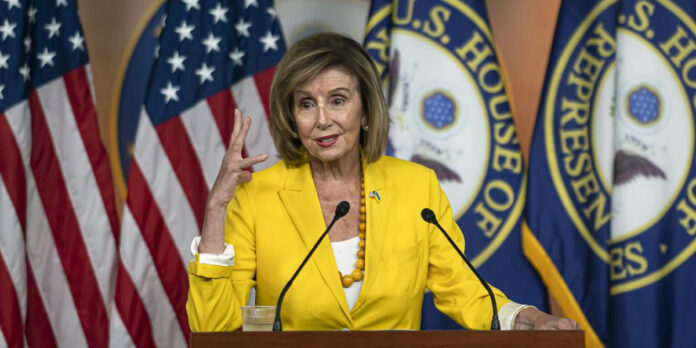China and US are once again on the contending grounds. On August 3rd, 2022, a visit by the US House of Representative Speaker, Nancy Pelosi to Taiwan, further strained the already deteriorating ties between the U.S and China. The visit took place in defiance of China’s warnings to refrain from taking such a step, creating an extremely dangerous situation with the possibility of armed conflict between the two countries.
At the heart of this divide is that China sees Taiwan as a breakaway province that will ultimately be part of the mainland. Taiwan however regards itself as a sovereign nation, unwilling to reunite. Their self-declaration of independence has been fully supported by the U.S, much to the opposition and disapproval of China, which considers reunification with Taiwan as their internal matter and ultimate national goal. Although the U.S officially recognizes the One-China policy, it has pledged to support Taiwan’s independence and supports it through the supply of military hardware and aid.
This visit to Taiwan by Nancy Pelosi, a staunch opponent of China, was not officially sanctioned by the White House but has been a mistake and a dilemma for the Biden administration. Why? Firstly, China today is a much stronger country than they were, 20 years ago, economically and militarily. The China of today is not afraid to flex its muscle (in the context of Taiwan) and can, if necessary, invade Taiwan. The repercussions of that move would surely result in a military confrontation with the U.S. Suffice to say that it may lead to another world war, with respective allied nations getting involved in the conflict.
Secondly, the ongoing Russian- Ukrainian conflict has already sent ripples across the world and the U.S economy is on the verge of a recession. Therefore, an armed conflict with China is the last thing the Biden administration wants. With energy prices soaring and inflation rampant in almost every country, the world and the U.S cannot afford the possibility of conflict with China.
On Thursday, as a consequence of Pelosi’s visit, China fired multiple missiles into waters surrounding Taiwan and began a series of massive military drills around the island; the White House summoned China’s ambassador, Qin Gang, to protest. However, a day later, China announced that it was ending cooperation with the US on key issues including the climate crisis, anti-drug efforts, and military discussions.
Just ahead of Nancy Pelosi’s trip, Thomas Friedman, an author and New York Times columnist, described Pelosi’s adventure as “utterly reckless, dangerous and irresponsible”, arguing that Taiwan will not be more secure or prosperous because of a “purely symbolic” visit.
Another fact to consider is that the world we live in now is bi-polar as the so-called super powers i.e. the U.S, China, and Russia are all eager to enlist new countries in their alliance/bloc. This campaign has been spearheaded by these three countries by pledging massive aid and concessions in return for their support.
Pakistan, which has always been a steadfast ally of China and will remain so in the foreseeable future, has been feeling the pressure of today’s bipolar world. It is presently going through an economic crisis, unseen before in living memory. It is heavily in debt, with depleting foreign exchange reserves and an acute energy crisis. Pakistan’s urgent requirement at the moment is to obtain funds from the IMF, to avoid defaulting on its loans.
However, the problem here is that the IMF is run and financially backed by the U.S. It has the ability and power to exert influence by way of sanctioning or declining IMF loans, to developing countries like Pakistan. Hence, in the present worldwide political scenario, the U.S will undoubtedly be looking for some form of concessions from Pakistan. They may also seek to dissuade Pakistan from cooperating with China on an initiative like the CPEC and BRICS. This is doubtful, though, given that China has been Pakistan’s most dependable ally since independence, and the two countries have long-standing, cordial relations.
In conclusion, these are difficult times for Pakistan. On one hand, we can never desert our Chinese friends. On the other, we need the support of the U.S in obtaining IMF loans to avoid default. The question is, do we have many choices?
https://tribune.com.pk/story/2368859/is-the-west-punishing-pakistan-because-of-china




